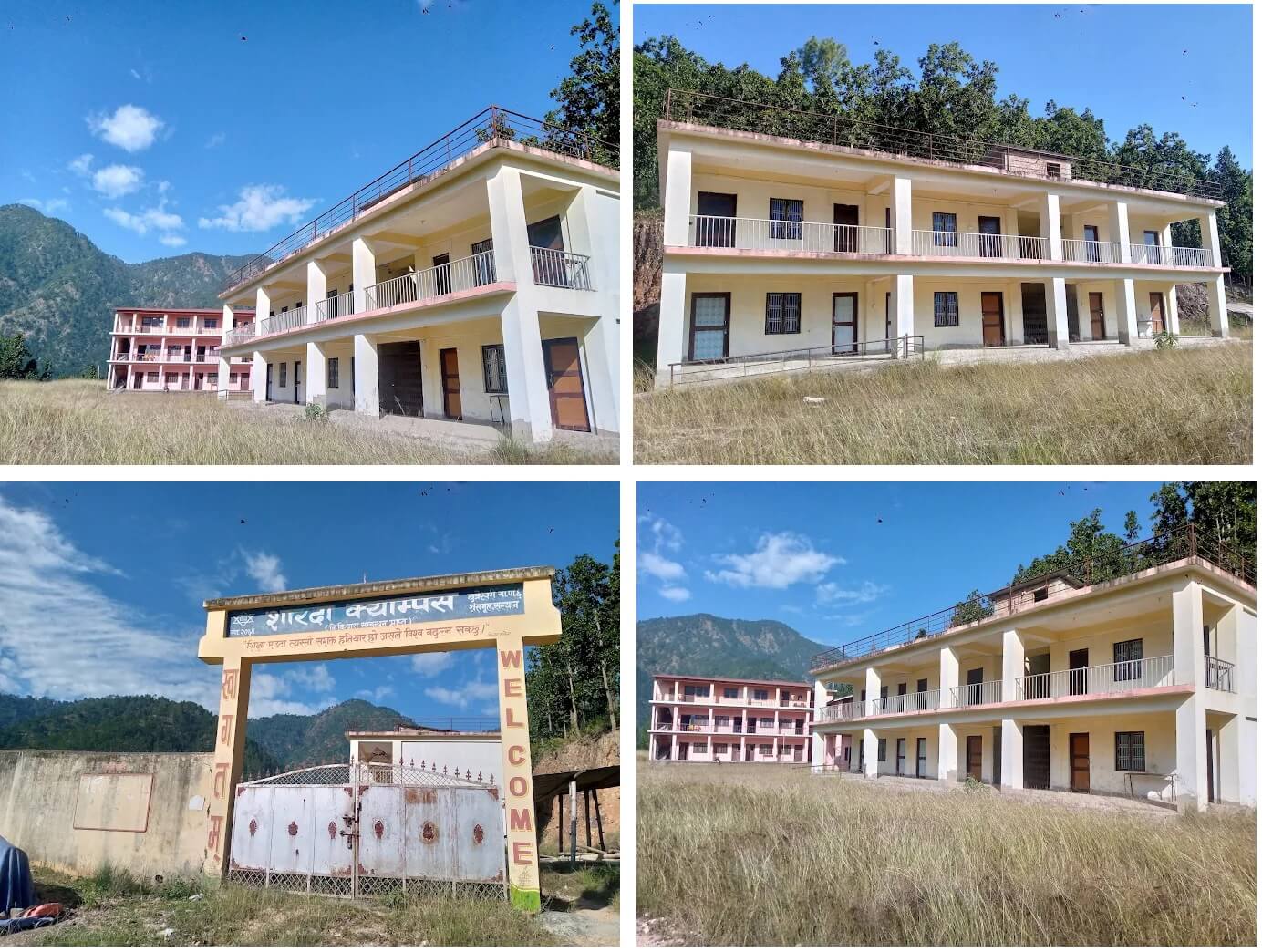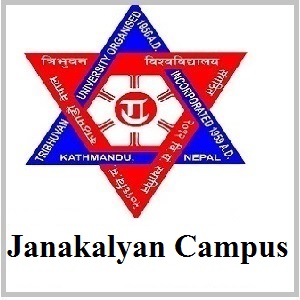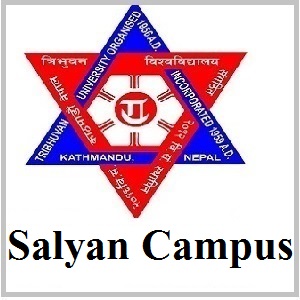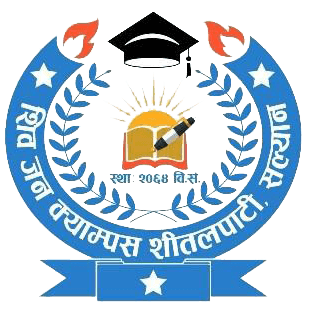Overview
Master of Education (M.Ed.) at Sharada Campus Salyan
Sharada Campus, located in the peaceful hills of Shankhamul, Chhatreshwori Rural Municipality, offers a two-year Master of Education (M.Ed.) program under the semester system of Tribhuvan University (TU).
This program is designed for individuals who want to deepen their knowledge in education and prepare for roles as teachers, educational leaders, curriculum developers, and academic researchers.
The M.Ed. degree at Sharada Campus is structured to help students grow both professionally and academically, with a focus on practical teaching, research, and specialized expertise.
Duration and Structure
-
Total Duration: 2 years (4 semesters)
-
Credit Hours: 69
-
Examination System: Semester-wise (Internal 40%, External 60%)
-
Study Mode: Full-time, in-person
-
Evaluation: Assignments, project work, teaching practice, and thesis

Course
| Components | Credit Hours |
|---|---|
| Core Professional Courses | 21 |
| Specialization Courses | 39 |
| Teaching Practice | 3 |
| Thesis Writing (Part A & B) | 6 |
| Total | 69 |
Specialization Options
Students can choose one subject area based on their background in the B.Ed. or equivalent degree.
-
English Education
-
Nepali Education
-
Mathematics Education
-
Science Education (Biology/Chemistry/Physics)
-
Health Education
-
Physical Education
-
Population Education
-
Political Science Education
-
Geography Education
-
History Education
-
Curriculum and Evaluation
-
Educational Planning and Management
-
Special Needs / Inclusive Education
-
ICT in Education
-
Economics Education
Entry Requirements
To be eligible for the M.Ed. program at Sharada Campus, applicants must:
-
Hold a Bachelor of Education (B.Ed.) or Postgraduate Diploma in Education
-
Meet subject-specific criteria depending on the chosen specialization
-
For example:
-
English Education: Must have studied English in B.Ed. or BA with a one-year B.Ed.
-
Mathematics Education: Requires a math background in B.Ed., BA, or B.Sc.
-
Health Education: Open to B.Ed. graduates or those with BPH, B.Sc. Nursing, etc.
-
-
How Students Learn
The program emphasizes practical learning and critical thinking through:
-
Group projects and classroom discussions
-
Research writing and proposal development
-
Case studies and seminar presentations
-
Six weeks of school-based Teaching Practice in the fourth semester
-
Master's Thesis supervised by senior faculty
This blend of theory and practice enables students to gain a comprehensive understanding of real-world education systems and pedagogy.
Why This Program Stands Out
-
Semester-based learning for in-depth understanding
-
Choice of specialization to match your career path
-
Thesis writing and teaching practice to sharpen real-world application
-
Regular academic guidance and research mentorship
-
Committed faculty with strong academic and teaching backgrounds
Grading and Evaluation
-
Students are evaluated each semester based on participation, assignments, internal assessments, and semester-end exams.
-
The grading follows TU’s official GPA system (4.0 scale):
-
A (4.0): Distinction
-
B+ (3.4): First Division
-
B (3.0): Second Division
-
B− (2.7): Pass
-
To graduate, a student must maintain a minimum CGPA of 3.0 (60%).
Affordable Education and Support
As a community-run institution, Sharada Campus is dedicated to making quality education accessible and affordable. The fee structure is student-friendly, and the college offers scholarships and financial aid for:
-
Students from low-income or rural backgrounds
-
Marginalized communities
-
Top-performing students
-
Candidates facing financial challenges
Facilities That Support Learning
M.Ed. students benefit from a supportive academic environment that includes:
-
A dedicated library and reading spaces
-
Well-equipped multimedia classrooms
-
Counseling and academic mentoring
-
Field visits and educational tours
-
Research and proposal-writing guidance
-
A peaceful campus setting ideal for study and reflection
Who Should Apply?
If you’re a graduate in education or related fields and you’re aiming to:
-
Become a higher-level teacher or trainer
-
Work in educational administration, planning, or curriculum development
-
Conduct research or contribute to policy and innovation in education
-
Develop leadership skills to contribute to the evolving education system




















